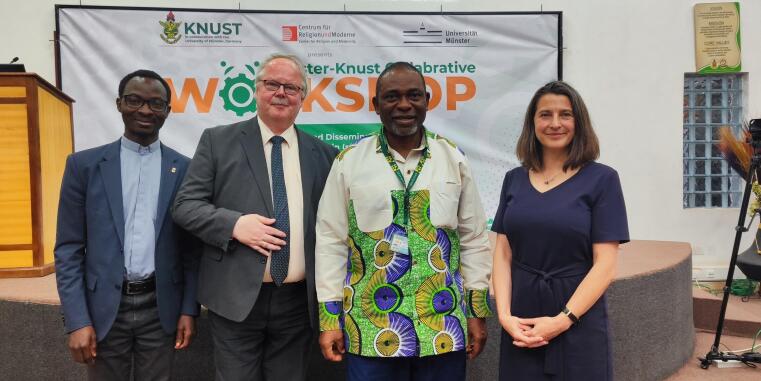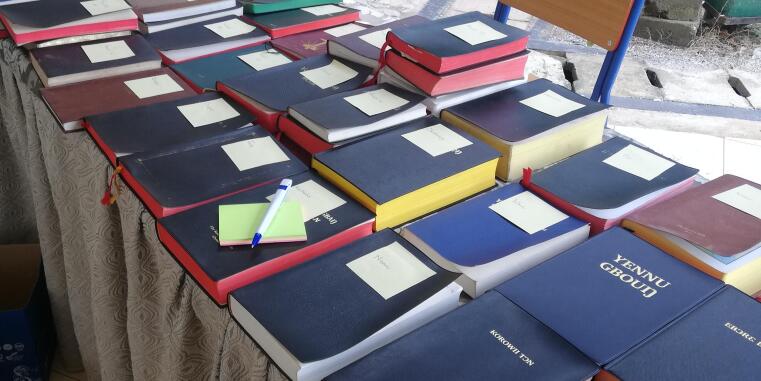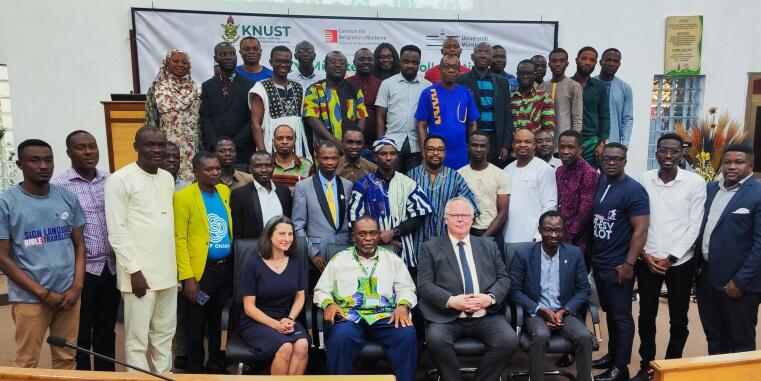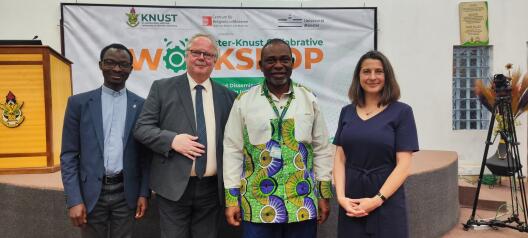














The GloBil project is committed to making a contribution to the decolonisation of knowledge surrounding the histories and legacies of mother-tongue bible translations and in this spirit we—Michael Wandusim and Felicity Jensz—co-organized a workshop on 2 July 2024 with our colleague Prof. J. E. T. Kuwornu-Adjaottor of the Department of Religious Studies, Kwame Nkrumah University of Science and Technology (KNUST) in Kumasi, Ghana.

The first session was focused on the history of Bible translations and Bible societies, including an overview of the GloBil project (Jensz/Wandusim), the history of bible translations in West Africa (Ekem) and the historical basis of Greek translations (Strutwulf). This session provided context into the deep historical tradition of Bible translations and transcriptions.
In sessions dedicated to the reception and dissemination of bible translations, a wide range of topics were covered, including the question of how mother-tongue Bibles reflect African spirituality (Afriyie), as well as specific examples of Bible translations for the Bono-Twi (Boaheng) and Dangme (Kuwornu-Adjaottor) languages. Several papers focused on mother-tongue biblical hermeneutics, including the history and focus of different directions of mother-tongue biblical hermeneutics in Ghana (Aryeh), mother-tongue biblical hermeneutics as decolonized knowledge production for social transformation by (Amevenku), and the centrality of mother-tongue Bibles to the religious landscape of Ghana (Torsu). The processes behind the distribution of Bibles in Ghana today were also presented in a paper (Worae), which highlighted some of the historical processes still used today as well as some of the newer forms of bible dissemination, including through digital means.

Over 50 people attended the workshop at the Institute for Distance Learning (IDL) Amonoo-Neizer Conference Centre at KNUST to discuss aspects surrounding histories, legacies and dissemination of mother tongue bibles. Of particular note was the display of mother-tongue bibles of many Ghanian languages, some of which have historical legacies dating back to the nineteenth century.
To the video recording of the workshop
The rich presentations over the day demonstrated the value of the collaborative workshop and provided insights into many aspects of mother tongue bibles that will be reflected in further outputs of the project, including future blogs and also publications. The workshop was made possible by our KNUST co-coordinator Prof. J. E. T. Kuwornu-Adjaottor and financed through the Internationalization Fund of the University of Münster.